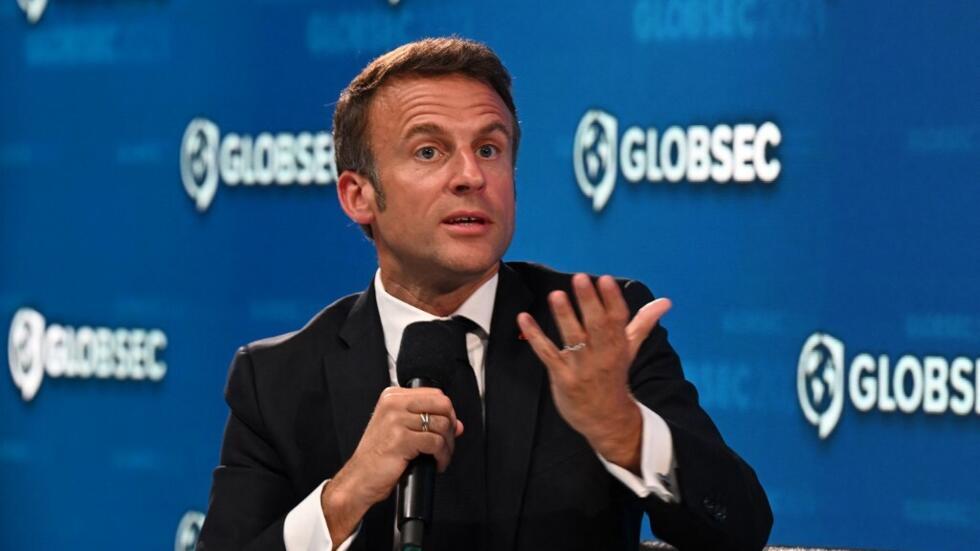
The Bucharest Nine (B9) countries of the NATO alliance met in Bratislava this week. On the agenda: Russia's ongoing military campaign in Ukraine. But some B9 countries are less willing to help than others.
The Bucharest Nine (B9) is a group of nine NATO countries in Eastern Europe that became part of the alliance after the end of the Cold War.
The Bratislava talks came ahead of next month's NATO summit in Vilnius. There, "very significant decisions" will be taken, according to the alliance's Secretary General Jens Stoltenberg.
"We will strengthen our support for Ukraine with a multi-year package of assistance to help them transition from Soviet-era to NATO standards, and bring Ukraine closer to NATO," he said.
He added: "We must also agree a stronger commitment to increase defence investments, with two percent of GDP as a minimum."
Stoltenberg also said he was "working hard to ensure that [NATO] welcomes Sweden...as a full member of this alliance [soon]".
Sweden and Finland dropped decades of military non-alignment and applied to join the alliance after Russia's invasion of Ukraine.
In Bratislava today for the #Bucharest9 Summit to discuss the most pressing security threats and challenges on the Eastern Flank and the whole Euro-Atlantic area, and prepare for the upcoming #NATO Summit in Vilnius. pic.twitter.com/SsabM7atdc
— Klaus Iohannis (@KlausIohannis) June 6, 2023
Finland formally joined NATO in April.
But Sweden's accession still faces hurdles.
Turkey is angry that Stockholm shelters PKK activists, which Ankara regards as "terrorists."
Hungary's Victor Orban recently stated that "political relations between Hungary and Sweden must improve before the Nordic state’s bid for NATO membership is approved."
During the Qatar Economic Forum in May, Orban explained that as far as he is concerned "the political relations between Hungary and Sweden are awfully wrong,” adding that “we don’t want to import conflicts into NATO.”
Hungary is also the only EU country that still depends heavily on Russian gas. The result is that Orban does not share the EU's and NATO's more agressive stance towards Moscow.
'Electric shock'
Still, NATO is more vibrant now than it has been since the end of the cold war in 1991.
According to France's President Emmanuel Macron, Russia is solely responsible for Nato's increased activity.
On 18 March 2022, less than a month after Russia’s invasion of Ukraine, French President Emmanuel Macron said Moscow’s action had given NATO an “electric shock,” a statement that contrasted strongly with his remark, two years earlier, that the trans-Atlantic alliance risked becoming “brain dead.”
On the map, the B9 (Estonia, Latvia and Lithuania and former Warsaw Pact countries Poland, Slovakia, the Czech Republic, Hungary, Romania and Bulgaria) form a security cordon that protects the EU from possible attacks from the east.
The group was initially formed in 2015 by Romanian President Klaus Iohannis and his Polish counterpart Andrzej Duda in response to Russia's annexation of Crimea and its intervention in Ukraine's Donbass region the year before.

Since the Russian invasion of Ukraine in February 2022, NATO members, including France, poured money and material into the region to strengthen the B9 defences.
In October 2022, Macron announced that France would “double the number of troops deployed in Romania,” and sent 350 additional soldiers as well as a dozen armoured vehicles and a dozen Leclerc tanks.
Rafale fighter aircraft were also deployed in Lithuania, and a hundred additional troops were added to 300 already posted in Estonia.
At the time, the French Defence Ministry estimated that the French budgetary effort for the reinforcement of NATO's eastern flank would cost some €700 million.
Ukraine to join?
Meanwhile, Ukraine's possible NATO membership may be on the table as well.
Russia does "not have a veto" on Ukraine's eventual membership of Nato, according to Stoltenberg.
"All allies agree that NATO's door remains open, that Ukraine will become a member of the alliance and that Russia does not have a veto," he said.
Moscow has long seen Nato's "eastward expansion" as a security threat.
(With agencies)







